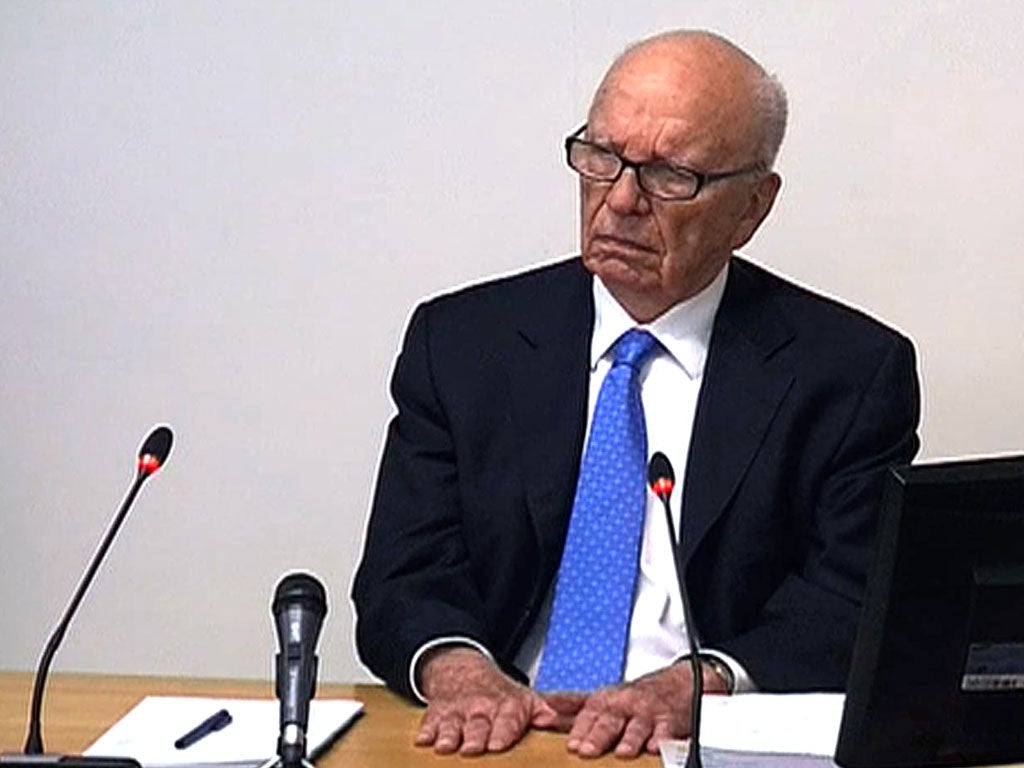What do Americans make of Leveson? They're horrified at tabloid behaviour - and press regulation
In the digital age, no free press can be restrained by national borders. The networked world of the web makes it an increasingly international issue

To Americans, or at least the tiny fraction of them who are interested in the British press, the Leveson Inquiry has been a spectacle as bizarre and quaint as the changing of the guard, or Wendi Murdoch clouting the pie man in front of a Parliamentary Select Committee hearing.
Scandalised
In a country where the First Amendment that protects free speech and the free press is ingrained not just into the Constitution but into the culture, the idea that a developed democracy would tolerate regulation of the press is both strange and abhorrent. Here there is very little libel, and no-one would be arrested for wearing a T-shirt, or burning a poppy on their Facebook page. But the cultural norms here also allow hate speech to have a platform and are much more proscriptive around swearing and nudity.
Whilst the US is horrified at the idea of a regulated press, it is equally scandalised by the kinds of practices which apparently went on in tabloid newsrooms in the UK press. For many months the major question on this side of the Atlantic was whether any of Rupert Murdoch’s US properties, particularly the New York Post, had ever employed the same tactics. So far this is not proven. But even if it were to be, the sense in US newsrooms is that these practices, if they existed in any papers at all, are not endemic.
A cultural context rather than the letter of the law keeps the US press operating at less rumbustious pitch than in the UK. In the US, the press has traditionally been composed of large metropolitan daily newspapers, such as the New York Times, The LA Times, the Chicago Tribune and the Washington Post. The competition is much less fierce for the press, and the ‘balance’ and ethics of American journalism come as much from a market imperative as they do from isolated standards in journalism. On cable television the reverse applies; the invective and economy with the truth is extraordinary when compared with the more regulated version of UK broadcast news.
US papers which have to have both broad appeal and trust from their market to survive, the visceral competitive market of the UK looks sharp, but also sometimes unprofessional; the hacking scandal, both in the Guardian’s investigation of it, and the corruption it uncovered confirmed for many in the US the extremes of good and bad in UK journalism.
You Say Tomato
Whilst this transatlantic dialogue has been something of a ‘you say tomato’ flavour to it, there is a deeper issue here which frets at the edges of press regulation. The more highly networked world of the real time web is going to either require a far higher level of suppression at a local level, or there will be a levelling process around free speech, and by default the free press. America currently exports its own standards of free speech, largely through the Google-owned YouTube and micro-blogging platform Twitter.
In the past few months we have seen what happens when a deliberately provocative and fraudulent film like ‘Innocence of Muslims’ is uploaded onto YouTube in California by a ‘troll’ (someone who indulges in online provocations just to cause trouble), and is downloaded into the inflammatory environment of the Middle East. Innocence of Muslims became a faulty test of free speech values; it was not a valuable contribution to democracy, and it caused physical harm in other parts of the world, but there was significant pressure on YouTube in the US to keep the film on its platform, as to take it down would represent a breach in free speech principles.
It is worth noting that if anyone tried to speak freely on YouTube without clothing they would be instantly in breach of terms and conditions and have their content removed. The same would apply if copyright were breached; the boundaries of free speech have hard commercial edges. Leveson is a world away from the land of freeish speech, incomprehensible when stripped of cultural context, rather like the shenanigans at the BBC. But the progress of what we see as a free press is an increasingly international issue.
Emily Bell is director of digital journalism at the Columbia Graduate School of Journalism and a former director of digital content at the Guardian

Join our commenting forum
Join thought-provoking conversations, follow other Independent readers and see their replies